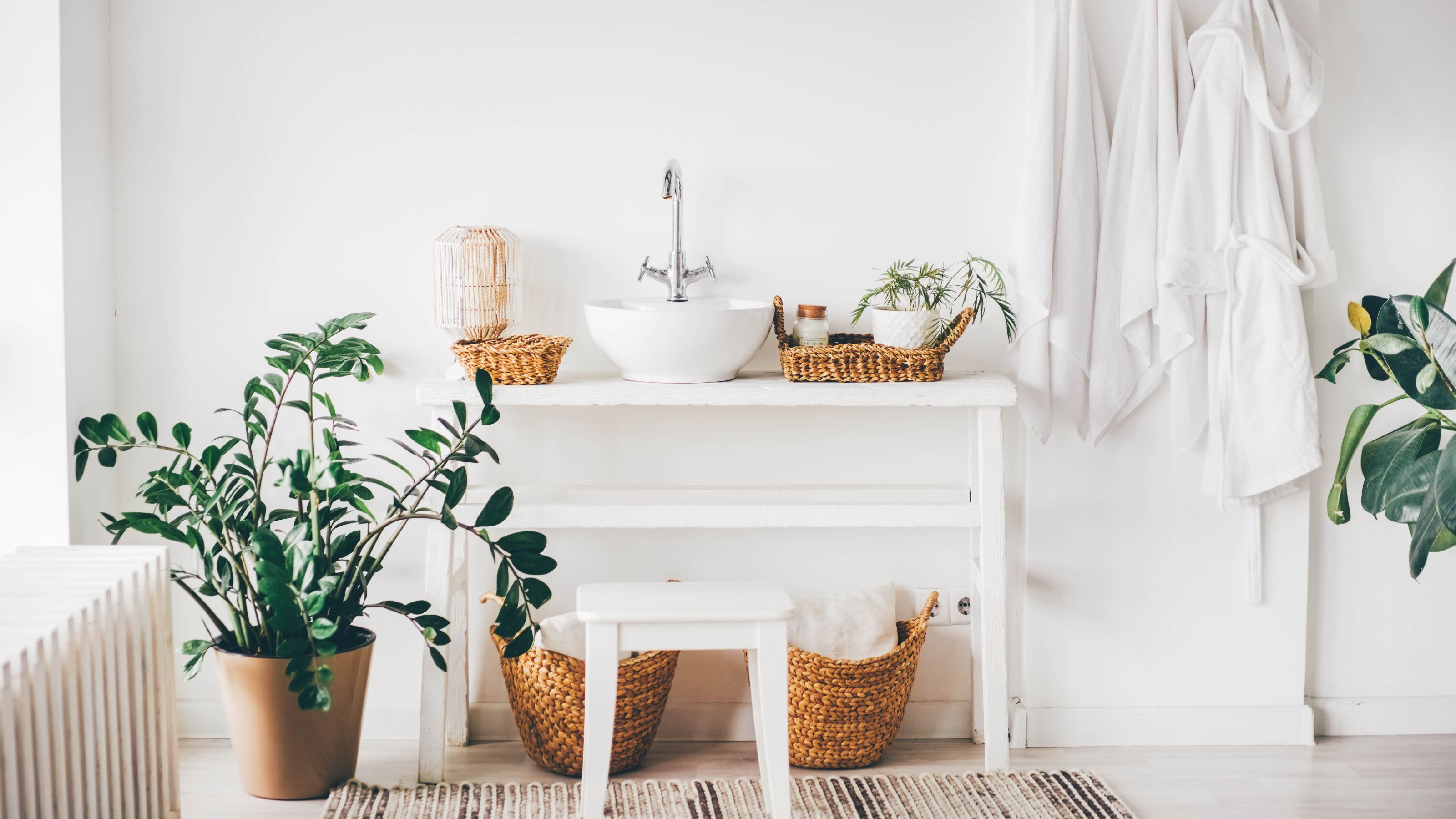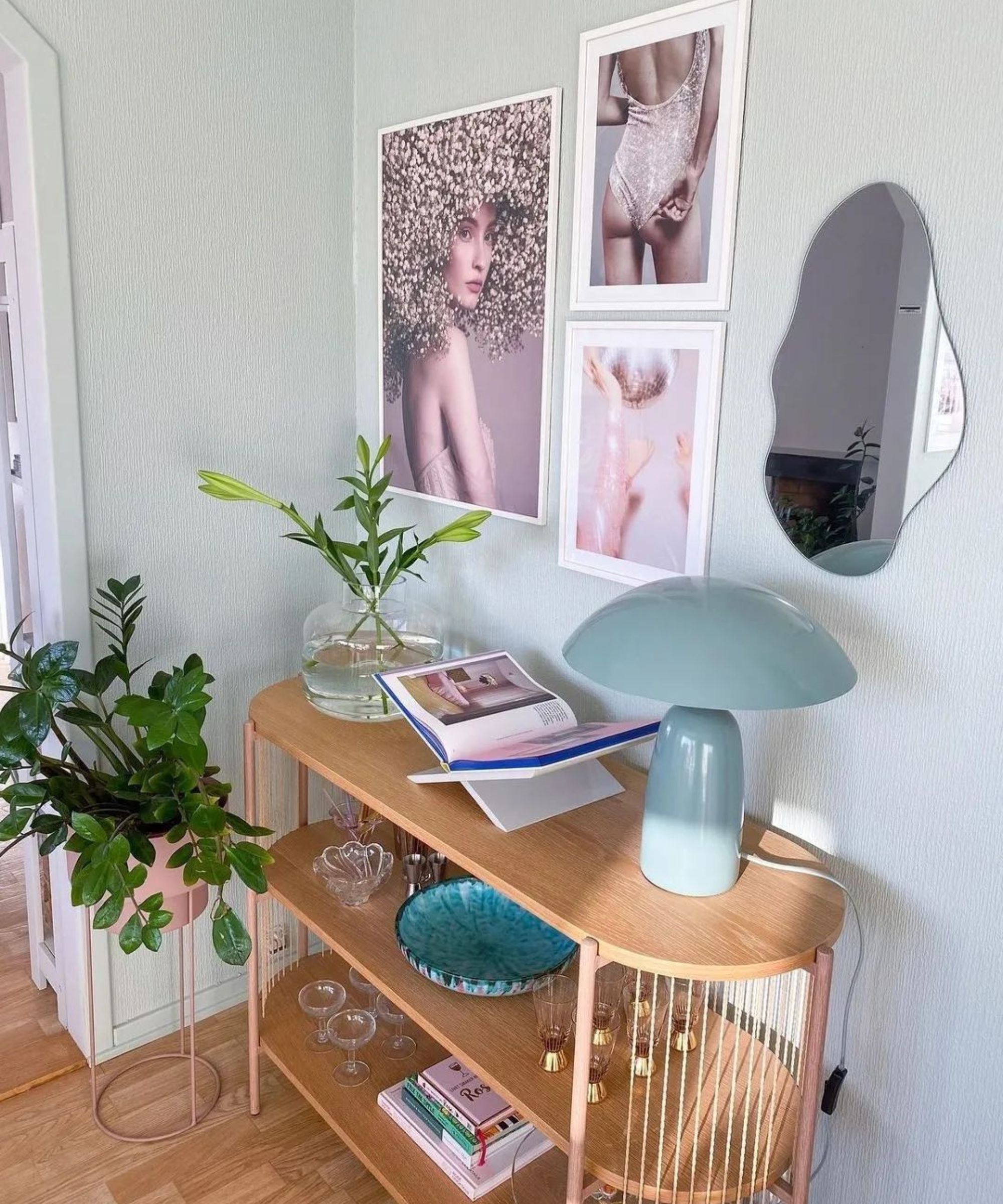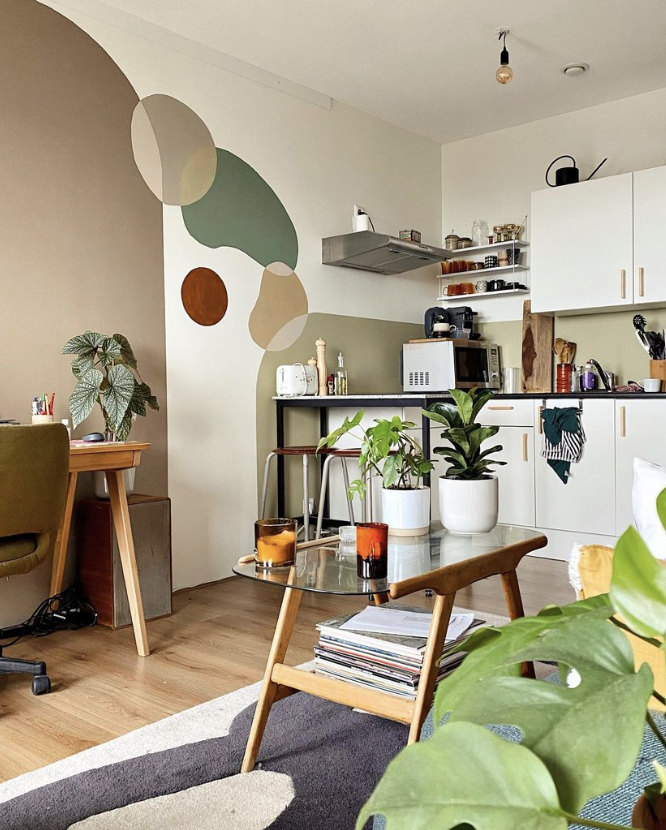How to create feng shui for your studio apartment or small room
Aaaaaand relax


Bringing positive vibes into your living space is the key to healthy living throughout all aspects of your life — especially if you live in a 400-square-foot studio or tiny room. When you first start considering feng shui for your studio or room, it may seem more complicated than feng shui in a larger space. Creating feng shui in your studio is a great idea because every square inch counts!
In case you didn’t know, feng shui is an ancient Chinese method of balancing the energy of the home to enhance relationships, increase prosperity, and achieve better health. It requires careful calculation of energies based on celestial currents.
Despite the limited space, particularly in studios or small rooms, it's possible to create a comfortable and harmonious living environment by applying some simple feng shui. These principles can be applied to smaller spaces to optimize the flow of energy and enhance the overall well-being of the inhabitants. Creating a cozy and inviting space that gives you a sense of balance and harmony is easily achievable with some simple adjustments.
With this in mind, certified feng shui practitioner, Candice Berlanga, took the time to provide us with her take on how to create feng shui in a small studio apartment or room.
Front Door

Starting at the entrance, one of the most important features in feng shui is the door to your home, as it’s where energy enters since the door is used and is called the mouth of “Qi” — often described as “energy” or “life force”.
Getting this energy into your home is easy to obtain by simply keeping the front door in good repair and the surrounding area clean and clutter-free, as this will assist with ensuring positive energy flow into the home.
A well-maintained front door also creates a welcoming and inviting atmosphere, both for the occupants of the home and for visitors. For an added feng shui-inspired design touch, you can add a wreath, door hanger, or plants around the area to make it more welcoming.
Get small space home decor ideas, celeb inspiration, DIY tips and more, straight to your inbox!
Lighting
Sunlight is also an important aspect of feng shui, as it can play an important role in how your space feels. Opening curtains and blinds to allow a daily dose of sunlight plays an important role in our lives. Studies show this can help with mental health and overall well-being.
Although natural sunlight is important in a home, too much light can be overwhelming so controlling both artificial and natural lighting is important. This can be achieved by using dimmer switches, adjustable lamps, and natural light sources such as windows and skylights.
Natural lighting can be controlled with room darkening curtains or blinds, which can also help block out light pollution from close neighbors as well as early sunrises to allow for a better night's sleep. Also, pay attention to whether you like it brighter or dimmer, your lighting should match your preferences.
Plants

Plants help hold in the Qi (energy). Adding indoor plants to a space is a popular and effective way to improve feng shui.
Plants are believed to hold in Qi or energy, which helps your home gather and retain energy for your well-being. They also can purify the air, reduce stress, and promote relaxation.
Bathrooms
Bathrooms are often looked at as evil in feng shui. They're the spot we go to eliminate waste and are often seen or referred to as an energy drain to space due to their purpose. The fact is, it’s a necessary part of one’s home no matter how small.
The solution to keeping good energy flowing around bathrooms is to keep them clean and well-ventilated. Keeping the door closed also helps with avoiding any issue there may be in terms of location in the space, like being too close to the kitchen area or facing your bed.
If you’d like, many people like adding a plant or a bowl of sea salt on top of the toilet or in the bathroom to help absorb negative energy. Keeping the toilet lid down is also recommended.
Bed Placement

Your bed’s location and where you sleep is another important factor in feng shui, as your bed relates to many aspects of life, relationships, health, and self-worth. Also, you spend a large portion of your time sleeping, so it's important to make sure your sleeping space is comfortable and supports a good night's rest.
Limited space in tiny living spaces can make it difficult to follow traditional feng shui “rules” of bed placement such as seeing the door but not facing it directly, not facing the stove directly, not facing the bathroom door, and not placing your bed under a window.
If possible, select a bed position based on the factors listed above, however, I know this may not be achievable with a limited layout. If space allows, block the bed with cabinets, or room divider. In limited space, hang curtains to create a sense of privacy. Investing in a quality mattress, pillows, and bedding can help improve the quality of your sleep and ultimately, your overall health and well-being.
Divide and Conquer
Make each area have a purpose. Living in a space where everything is open could present challenges, as it can make you feel like you’re in a giant bedroom rather than a living space that supports all aspects of your life.
Creating micro areas for intended and specific purposes such as eating, working, or spending spare time, can also help keep clutter and mess under control. This can be done by using shelves, curtains, dividers, and folding screens, all of which are moveable and can be equally reconfigured to separate areas.
Adding area rugs can also help define a space. If you’re able, painting accent walls can also help create a clear boundary of space. Getting creative with defining and designing each space can be fun!
Mirrors
Mirrors can also be used to define a space or make a space feel larger. However, there are some things to consider when it comes to mirrors and feng shui, which may be more relevant in a space that is smaller or one room such as an efficiency or studio apartment.
Avoid a mirror facing your bed, this can reflect sunlight onto your face and make sleep restless. If you can't avoid the mirror/bed situation, simply cover it at night. Avoid a mirror facing another mirror creating an infinity effect, as this could be way too energetic for any space.
Color
While considering accent walls to define your space, be sure to consider colors. Color can play a significant role in the way a space feels. It can help a space feel calmer, or even make a space feel larger. When designing a space, it's important to consider the impact of color.
Colors have the power to evoke emotion and influence mood, so it's important to choose them carefully. Warm colors, such as muted or terracotta-type reds, yellows, and oranges, can create a cozy and inviting atmosphere. Cool colors, such as blues, greens, and purples, can create a calming and serene environment. Neutrals, such as whites, grays, and beiges, can provide a clean and structured feeling.
It's important to consider the purpose of the space and the desired mood when selecting colors. To create specific moods, look into color psychology before choosing a paint color. Additionally, using a variety of textures and materials can further enhance the overall feel of the space and can be added using artwork, pillows, blankets, and rugs. This can also make your space feel cozy and welcoming as opposed to small.
Utilizing Wall Space

The most common association with feng shui is the idea of cleanliness and minimalism, which could be overwhelming at times. Both can be hard to achieve since you live in your space. The most important thing is to keep things off the ground so clutter doesn’t block the flow of Qi (energy).
Storage and organization can be key in keeping your smaller space livable. By utilizing wall space and storing things vertically, you can keep your space less cluttered. Hanging shelves, baskets, and racks can help store daily-use items so you can “see” what you have and make reorganizing and decluttering easier.
Storing less used items higher and commonly used items lower is typically recommended. Also, using hooks behind any doors or wall hooks, you can create places to catch things like jackets and backpacks to keep them off the floor. You can also go vertical with your bed by installing a bed with seating or work space underneath. If you decide to create a loft space for your bed, just be mindful that it’s not directly over a stove or bathroom as this can cause restless sleep.

About Me:
Hello! My name is Aida M. Toro and I am a freelance writer that loves cultivating stories about amazing people, fashion, interiors, art, and food. I currently write for Harper’s Bazaar Vietnam, The House Magazine, Hobnob Magazine, The C-Word, and Real Homes. I live in West New York, New Jersey, which is literally a 10-minute ferry ride or 20-minute bus ride away from New York City. Although I was born and raised in West New York, I consider NYC my home, as I believe it to be the place where all dreams come to fruition, and of course, spend most of my time in. When I’m not writing, I love perusing the city streets and taking snaps with my iPhone of street art along with random things, scoping out new restaurants as well as their spaces, shopping at some of my favorite stores, spending time with family and friends, walking my cockapoodle Benji, and working out at Lifetime or DOGPOUND, which are some of the top fitness spaces in Manhattan and overall the U.S.